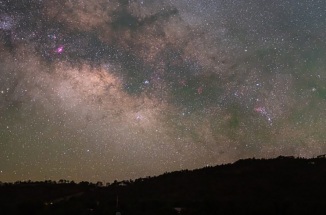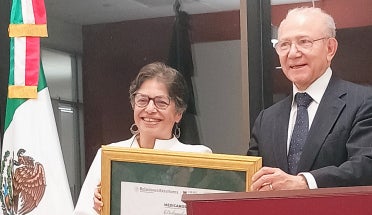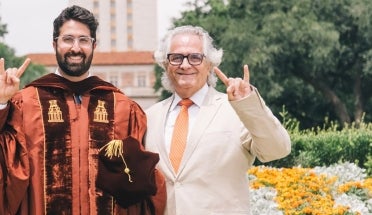
McDonald Observatory, Partners Create World’s Largest International Dark Sky Reserve
- Jun 10, 2022
The world’s largest international dark sky reserve is coming to Texas and Mexico, thanks to a partnership between The University of Texas at Austin’s McDonald Observatory, The Nature Conservancy, the International Dark-Sky Association (IDA) and many others.
The designation, granted by the IDA, recognizes the commitment of organizations, governments, businesses and residents to maintaining dark skies in the region. Preservation of the area’s dark skies will benefit not only astronomical research, but also wildlife, ecology and tourism.
“This reserve protects both the scientific research and public education missions of McDonald Observatory,” said Taft Armandroff, director of UT Austin’s McDonald Observatory. “Since 1939, McDonald Observatory has enabled the study of the cosmos by faculty, students, and researchers at The University of Texas at Austin and other Texas institutions of higher learning, with topics ranging from planets orbiting nearby stars to the accelerating expansion of the universe.”
The new Greater Big Bend International Dark Sky Reserve will encompass more than 15,000 square miles in portions of western Texas and northern Mexico. It is the only reserve to incorporate protected lands across an international border.
In the United States, participating protected lands include several certified International Dark Sky Places such as Big Bend National Park, the Big Bend Ranch State Park Complex and Black Gap Wildlife Management Area. South of the Rio Grande in Mexico, the reserve includes privately managed lands in Maderas del Carmen, Ocampo and Cañón de Santa Elena.
“This collaboration uniquely brings together working partners across a wide range which spans international borders,” said Kaylee French, education and outreach coordinator for The Nature Conservancy’s Davis Mountain Preserve. “Our dark skies are an invaluable natural resource that we are able to preserve only by working together, and we thank the International Dark-Sky Association for helping us to be responsible stewards of this now and forever protected resource.”



